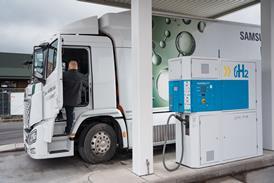Councils should gauge the strength of bridges and other road infrastructure so that they don’t collapse under the weight of heavier electric vehicles, according to transport ministers.
The response came after concerns were raised that some multi-storey carparks and bridges may not be able to withstand the load from new EVs, which can be up to a third heavier than petrol and diesel alternatives.

Conservative MP Greg Knight asked in the House of Commons if the transport secretary would make an assessment of “the adequacy of the strength of multi-storey carparks and bridges at safely bearing the additional weight of electric vehicles”.
In response, transport minister Jesse Norman said: “Local highway authorities are responsible for maintenance and management of their respective local highway networks, including any bridges that they own. It is for local authorities to decide what weight limits, if any, should be applied to any of their bridges because of the type or structural condition of the bridge or its inability to support heavy vehicles.”
Analysis carried out by the RAC Foundation found one in every 24 bridges managed by councils are currently unable to carry the heaviest vehicles, including HGVs up to 44 tonnes. The RAC Foundation added that over the last year there have been 14 partial collapses of bridges in Great Britain.
In January, the chair of the US National Transportation Safety Board, Jennifer Homendy, said she had become concerned about the safety risks from heavier electric vehicles, with battery packs in some models weighing the same as a Honda Civic.













